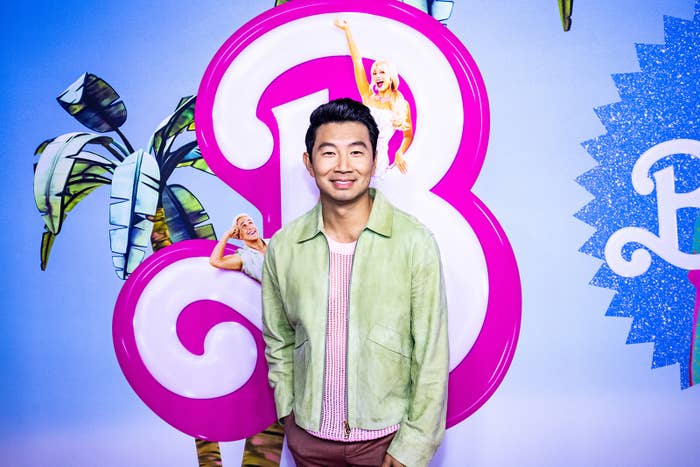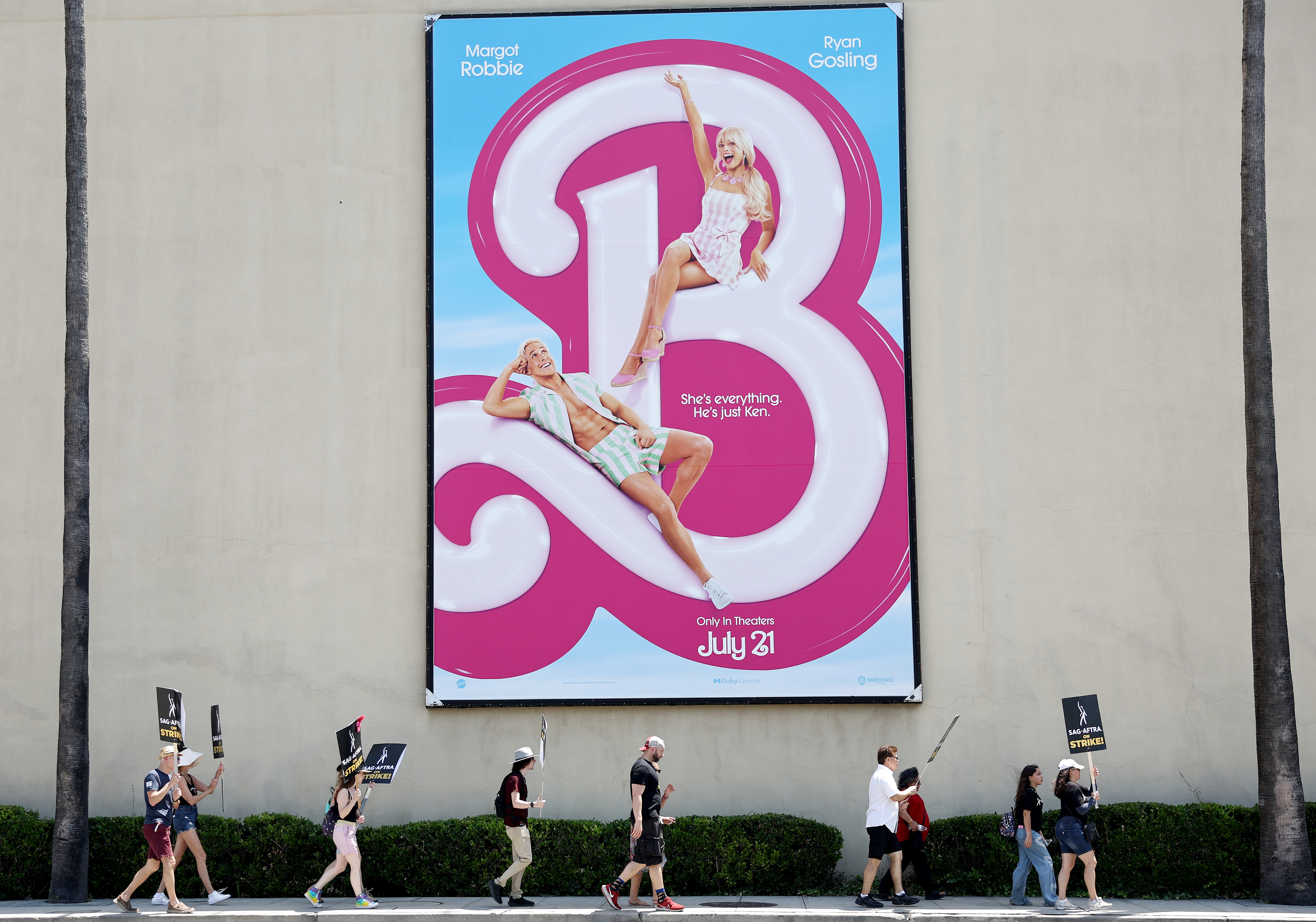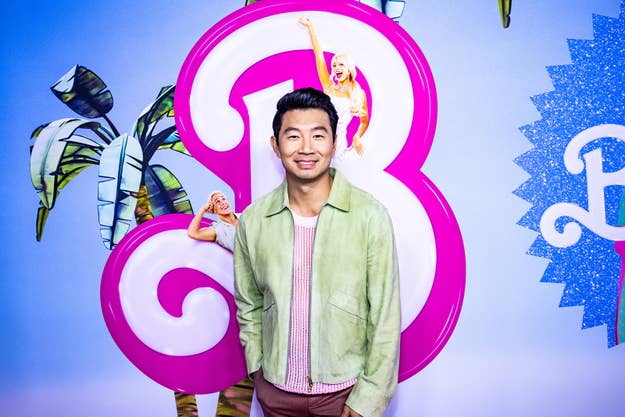
Simu Liu is well on his way to becoming one of the biggest actors in Hollywood. Most recently, he starred as one of the many Kens in Barbie, which is almost certainly going to become the highest grossing film in all of 2023. Liu almost plays Shang-Chi, a pivotal hero in Marvel’s current era, and an emerging leader in the next generation of Avengers of the next generation of Avengers.
Of course, before Liu's — and the rest of Hollywood’s actors and writers — careers continue, their strike against the Alliance of Motion Picture and Television Producers persists. Liu speaks very passionately about the issues at hand between SAG-AFTRA and the AMPTP, emphasizing that actors do not want to be out of work, but they want even more to not create their art under an exploitative system.
One of the biggest issues that Liu discusses is the threat that AI poses to the integrity of the industry. Artificial Intelligence is getting stronger and more prevalent in the world by the day, and it gives studios the ability to continue creating the same content without having to even utilize an actor or a writer for the same work.
Now, Liu has partnered with Cadillac to help them roll out the brand-new Escalade IQ, the brand’s first-ever all-electric, full-size SUV. We caught up with the Canadian actor in New York City to discuss his new partnership, his recently released music video, the SAG-AFTRA strikes, and more.
This interview has been slightly modified and condensed for clarity.
I want to start with your partnership with Cadillac. What is it like having them as a partner and working together on a project like this?
With Cadillac specifically, I really like the notion of redefining yourself, and I feel like that's what they first approached me with. So much of my story is about heading down one path in life, and then just completely about-facing and doing something else. For me, it was being an accountant, losing my job, and then hard-pivoting and deciding to pursue a career in the arts. For Cadillac, it's taking the Escalade into the age of EV; it's just a really, really awesome car that I’m really excited to help launch to the world and build around the idea of a renaissance, a moment of redefining an opportunity. And there's joy in that. I took a lot of joy in discovering who I was as an artist.
What are your thoughts on the brand new Escalade IQ?
I think the car is amazing. It's evocative of the kind of traditional Escalade form factor, but it's also reimagined in a way that looks sleek. It's kind of your classic Escalade, but with a space age kind of makeover; the interior is really gorgeous. It's got a 55-inch panoramic LCD screen that stretches throughout the entire dashboard. This is not minimalist by any means. You step in and it just feels like you're about to blast off into space, which is really, really cool for geeks like me.
You’ve said that you didn't know there was this artist inside? You just recently released a music video for your single, “Don’t.” What was it like to finally get that project off the ground?
It’s equal parts exciting and terrifying. I think, you know, a lot of people would argue that music is a young person's game. And I certainly see where that comes from, especially in the hip-hop world. But, you know, I've always had a tremendous passion for music. And when I had the opportunity to work with my label, 88Rising, and not only just making one or two songs, but potentially, you know, collaborating on longer-term projects, I just got really, really excited to find my sound. I think my sound would be different if I was in my early 20s, or late teens, but I'm not in those stages of life anymore. But that doesn't mean that my sound doesn't have value and that my voice doesn't have value. So really, really excited for everything that we've made. We'll definitely release more over the next couple of weeks and see how the world responds to it. But it's terrifying. It's very much outside of my comfort zone, which really intrigues me and excites me as an artist. I think there's an element of feeling like you have to continually take risks and step outside your comfort zone and or progress and evolve.
You've used the word "passion" a few times. Is music more of a passion project for you than acting is?
I mean, I love it all. Music feels like a passion project to me because I would say like there's truly no expectation of, you know, going Double Platinum. I really feel like I'm hopeful that it will find its audience. And it will resonate with hopefully the people who understand it and you know, the people who enjoy listening to it. But that in and of itself would be the highest degree of success. I'm not looking to pay my bills or get on Billboard. But hey, if it happens, you know, stranger things have happened.
With the strikes and everything going on, what have you been doing with the extra free time you have?
It's been a time for me to really, actually reflect back on my life. When I started out as an actor in Toronto, most of my gigs were just as a background performer or, you know, giving one or two lines on a TV show, like that made up the bulk of my income from year to year. On top of whatever I could kind of cobble together from these other side gigs. The gig economy means there's no stable income, there's no stability, and there's no assurance of when these funds will come in, how often, how much, and I think that's a reality for so many struggling artists, and people who don't represent the most visible, the most surface level successful artists that are out in the world. That's why we're striking, to be in solidarity with those people, to make sure that the people who do live paycheck to paycheck and gig to gig can at least get a fair and equitable deal in an environment where you have movie studios and streamers that are making billions of dollars and doing incredibly well in generating a lot of value for their shareholders, why then can't the artists and the tradesmen who provide the backbone for this industry also be fairly compensated? So that's what I've been thinking a lot about. It means, taking a bit of time off from doing that work myself, or promoting that kind of work, but it's important to realize why we're there and why we're doing what we're doing. And in that way, I feel like any way that I can support and show solidarity with the union.

I think what a lot of people are missing from these strikes is that there are certain actors who need work, right? But they're still striking because they still believe in this cause. Why is it such an important cause for the actors to join the writers and really just fight for what you guys believe in?
We’re at a really interesting inflection point in the industry. And I feel like a lot of industries are going through the same thing to be fair, but generative AI, it represents such a tool, and an opportunity, but also such an existential threat if the clear terms and boundaries and delineations are not properly addressed. I think, questions about AI, bring about further questions about what art even is. Where do you delineate human creativity versus machine learning? And where are the crossroads, and how do you draw a line? I think, with the market being the way that it is, if there is a way for a studio or a streamer to take advantage of this current situation, then they will. And that's exactly why the unions need to hold them accountable and need to protect the intellectual property of the writers, and to protect the digital likeness of the actors. I mean, these are definitely problems that we didn't anticipate having 10 years ago, but this is the landscape that we're in now, and so that, to me, is a big, big piece of why this strike, and this negotiation is important. Nobody I think given a choice, no actor wants to be picketing. No actor wants to be not working. That's what they love, first and foremost, out of anything, but, but but I think we don't want to do it under the, under the wrong pretenses or with the wrong circumstances. We don't want to do it, but we don't want to participate in a model that's exploitative to the bottom-line workers.
Outside of AI, what are the top two things that you want to see resolved from this strike?
Yeah, so I would say, residuals are a big thing. Everyone knows when streaming services came in, they really broke the mold, the model of how residuals are allocated. Before, if an actor does a recurring role on long-running TV show, a few seasons, as that key TV show continues to get syndicated across networks, or gets continued success, and people continue to watch it over time, those actors and artists, including writers, by the way, continue to be compensated through a mechanism called residuals. And that just means that you may have just gone to work for the one day, but the art that you created continues to generate wealth for the producers and for the networks that participated in it. Therefore, that wealth should be shared with everyone; it's a very simple idea. A lot of people can get behind it, but then with streaming, they've really turned that model upside-down and made it impossible for themselves to be held accountable to what residuals are owed to who, and so I think a lot of what the actors and writers are demanding is more visibility in terms of the metrics of success for these shows. How do we know who's watching? How do we know how well the show is doing? If we know a show is doing well, and generating a lot of value for a company, then they need to pay. I'm hopeful. I truly have no insight, but I'm just hopeful that the studios are willing to come to the table. Because I think every day that this strike goes on, it's our industry as a whole that suffers. As artists, we want nothing more than to create. But again, we don't want to create under an exploitative system.



